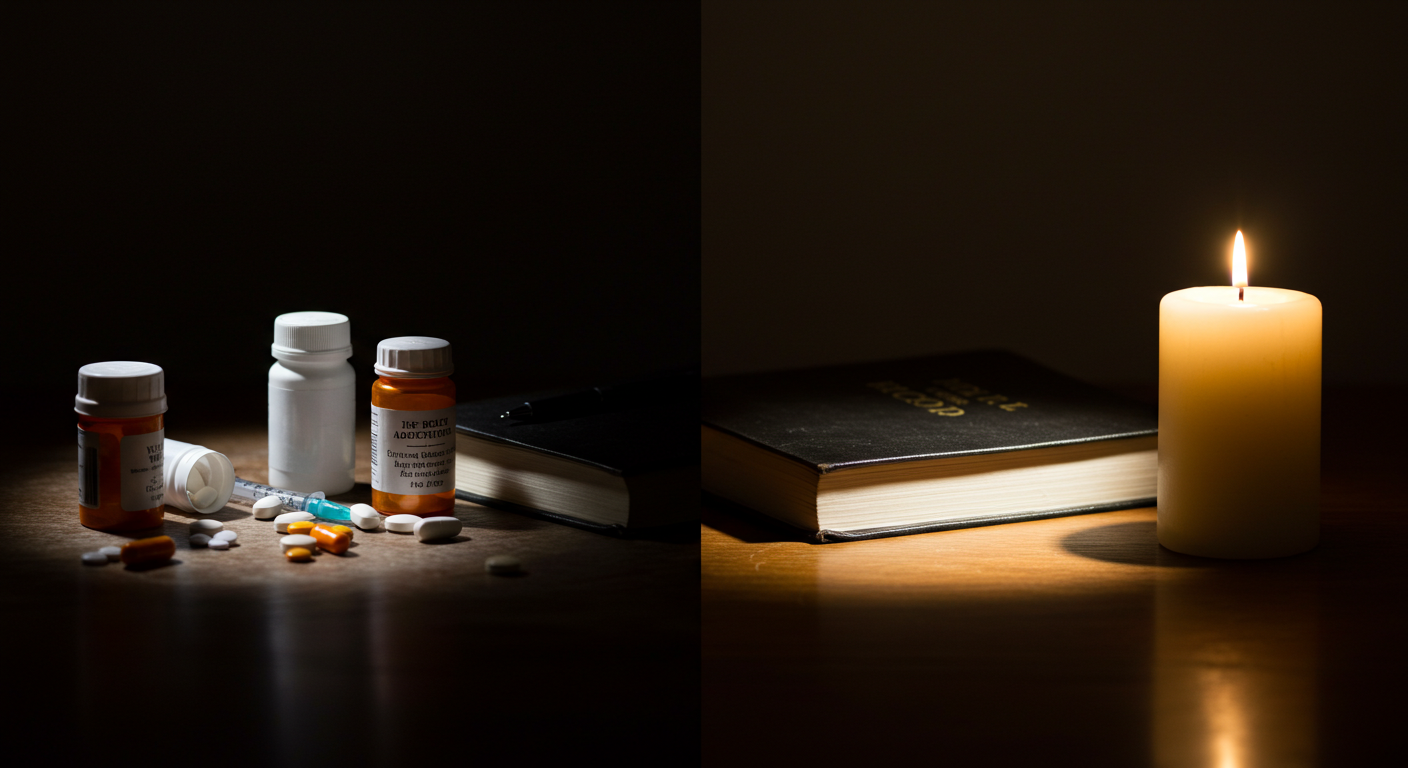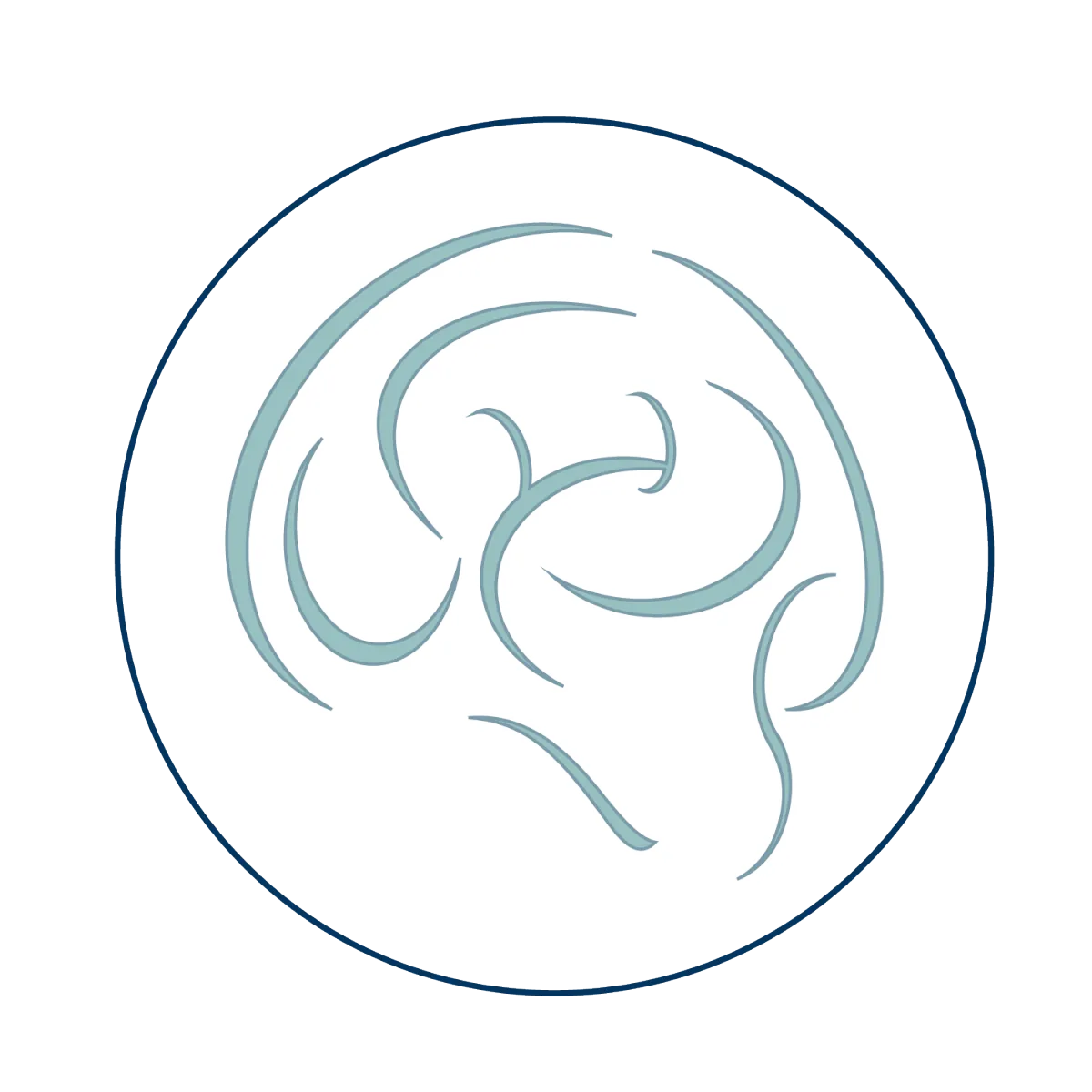Welcome to the Brain & Faith Blog
This is where neuroscience and Scripture meet to bring clarity, calm, and confidence into everyday life. From brain health tips and faith-based practices to practical support for parents of young athletes, you’ll find simple, actionable steps to strengthen your mind, nurture your spirit, and guide your family toward lasting peace and resilience.

Breaking Chains: Understanding Substance Abuse and the Path to Brain Healing
If you or someone you love has been touched by substance abuse, you know the devastating ripple effects that extend far beyond the person struggling. Addiction doesn't just affect behavior - it fundamentally rewires the brain, creating a complex web of neurological, psychological, and spiritual challenges. Understanding these changes isn't about making excuses or removing personal responsibility. It's about gaining the knowledge needed to fight effectively and find genuine, lasting freedom.
The Neuroscience of Addiction: How Substances Hijack Your Brain
Addiction is not a moral failing, character flaw, or lack of willpower. It's a chronic brain disease that hijacks multiple neural systems, making recovery incredibly challenging but not impossible.
The Reward System Takeover
Your brain's reward system was created to motivate survival behaviors like eating, drinking water, and reproducing. When you engage in these activities, your brain releases dopamine in the nucleus accumbens, creating feelings of pleasure and motivation to repeat the behavior.
Addictive substances flood this system with dopamine - often 2-10 times more than natural rewards. Cocaine, for example, can increase dopamine levels by 300%, while methamphetamine can increase them by 1,200%. This massive surge creates an artificial "high" that natural experiences simply cannot match.
Over time, your brain adapts to these unnaturally high dopamine levels by reducing its own production and decreasing the number of dopamine receptors. This creates two devastating effects:
Tolerance: You need more of the substance to achieve the same effect
Anhedonia: Normal pleasures (relationships, hobbies, spiritual practices) no longer feel rewarding
This is why people in active addiction often lose interest in everything they once loved. Their brain's reward system has been hijacked and recalibrated around the substance.
Prefrontal Cortex Damage
Chronic substance use damages the prefrontal cortex, the brain region responsible for:
Executive decision-making
Impulse control
Long-term planning
Moral reasoning
Self-awareness
This damage explains why people struggling with addiction continue using despite devastating consequences. It's not that they don't care about their family, job, or health - their brain's ability to weigh long-term consequences against immediate cravings has been compromised.
The Stress Response System
Addiction also dysregulates the hypothalamic-pituitary-adrenal (HPA) axis, your body's stress response system. This leads to:
Heightened stress sensitivity
Increased cortisol production
Difficulty managing emotions
Physical symptoms like sleep problems and immune dysfunction
Memory and Learning Changes
Substances create powerful memories and associations in the brain's learning centers. Environmental cues (people, places, emotions, even times of day) become triggers that can create intense cravings years into recovery. These aren't just psychological associations - they're deeply embedded neural pathways that can activate automatically.
The Spiritual Dimension of Bondage and Freedom
From a biblical perspective, addiction represents a form of spiritual bondage that goes beyond physical dependence. Scripture speaks of being "enslaved" to sin (Romans 6:6) and describes how we can become captive to destructive patterns that separate us from God and from the abundant life He desires for us.
But the gospel offers profound hope. Jesus declared, "So if the Son sets you free, you will be free indeed" (John 8:36). This freedom isn't just spiritual - it encompasses the whole person, including the brain's capacity for healing and renewal.
The apostle Paul understood something about the struggle with destructive patterns when he wrote, "I do not understand what I do. For what I want to do I do not do, but what I hate I do" (Romans 7:15). This internal conflict is magnified in addiction, where the brain's reward and control systems are working against each other.
Recovery involves both divine intervention and human cooperation. God provides the grace, strength, and community needed for healing, while we participate through surrender, seeking help, and taking practical steps toward restoration.
The Stages of Recovery: A Journey of Brain Healing
Stage 1: Withdrawal and Early Abstinence (0-90 days)
Physical Withdrawal: Depending on the substance, withdrawal can range from uncomfortable to life-threatening. Medical supervision is often necessary, especially for alcohol, benzodiazepines, and opioids.
Brain Changes: During this stage, the brain begins to restore normal neurotransmitter function, but this process takes time. People often experience:
Intense cravings
Mood swings and emotional instability
Sleep disturbances
Difficulty concentrating
Physical discomfort
Spiritual Dimension: This stage often involves surrender and acknowledgment of powerlessness. Many people find that hitting "rock bottom" creates an openness to God and spiritual help that wasn't there before.
Stage 2: Protracted Abstinence (3-12 months)
Brain Healing: The brain begins to restore dopamine function and repair damaged neural pathways. However, this process is gradual and can take months to years.
Psychological Challenges: As the acute withdrawal symptoms fade, deeper emotional and psychological issues often emerge. This is when many people benefit from therapy to address underlying trauma, mental health conditions, or life skills deficits.
Spiritual Growth: This stage often involves rebuilding relationship with God, learning to trust His faithfulness, and developing new spiritual practices that support recovery.
Stage 3: Long-term Recovery (1+ years)
Neuroplasticity and Renewal: The brain's remarkable capacity for change means that with sustained abstinence, many of the changes caused by addiction can be reversed or compensated for through new neural pathways.
Identity Reconstruction: Recovery involves developing a new identity that isn't centered around substance use. This includes discovering or rediscovering gifts, passions, and purposes that addiction had obscured.
Spiritual Maturity: Long-term recovery often involves not just personal healing but using one's experience to help others, fulfilling the biblical principle of comforting others with the comfort we've received (2 Corinthians 1:4).
Evidence-Based Treatment Approaches
Medical Interventions
Medication-Assisted Treatment (MAT): For opioid addiction, medications like methadone, buprenorphine, and naltrexone can help stabilize brain chemistry and reduce cravings while the person engages in recovery work.
Detoxification: Medical detox provides safe withdrawal management and can prevent life-threatening complications.
Psychological Interventions
Cognitive Behavioral Therapy (CBT): CBT helps people identify and change thought patterns and behaviors that contribute to substance use.
Contingency Management: This approach provides tangible rewards for positive behaviors like attending treatment or maintaining abstinence.
Motivational Interviewing: This technique helps people explore their own motivations for change rather than being told what they should do.
Social and Spiritual Support
12-Step Programs: Programs like Alcoholics Anonymous and Narcotics Anonymous provide peer support and a spiritual framework for recovery.
Faith-Based Recovery Programs: Programs that integrate Christian faith with evidence-based treatment can be particularly effective for people of faith.
Family Therapy: Addiction affects entire families, and involving loved ones in treatment can improve outcomes for everyone.
Practical Steps for Supporting Recovery
For the Person in Recovery
Build a Strong Support Network: Recovery cannot happen in isolation. This includes:
Professional treatment team (doctor, therapist, counselor)
Peer support groups
Spiritual community
Sober friends and mentors
Family members who understand addiction
Develop Healthy Coping Strategies: Since substances were often used to cope with stress, emotions, or trauma, developing new coping skills is essential:
Prayer and meditation
Exercise and physical activity
Creative outlets
Mindfulness practices
Healthy social activities
Address Underlying Issues: Many people with addiction also struggle with:
Mental health conditions (depression, anxiety, PTSD)
Trauma history
Chronic pain
Relationship problems
Financial or legal issues
Create Structure and Routine: The brain heals better with predictable routines that support physical and mental health:
Regular sleep schedule
Nutritious meals
Daily spiritual practices
Meaningful work or volunteer activities
Regular exercise
For Family Members and Loved Ones
Educate Yourself: Understanding addiction as a brain disease can help reduce blame and increase compassion while maintaining appropriate boundaries.
Seek Your Own Support: Al-Anon, Nar-Anon, and other family support groups provide education and emotional support for loved ones.
Practice Tough Love: This means loving the person while not enabling their addiction. It might involve:
Not providing money that could be used for substances
Not making excuses for their behavior
Setting clear boundaries and consequences
Supporting their recovery efforts while not controlling them
Take Care of Yourself: You cannot pour from an empty cup. Maintain your own physical, emotional, and spiritual health.
The Role of Faith in Recovery
Faith can be a powerful component of recovery, providing:
Hope: The belief that change is possible, even when circumstances seem hopeless.
Purpose: Understanding that God has a plan and purpose for your life that extends beyond addiction.
Community: A spiritual family that provides support, accountability, and unconditional love.
Forgiveness: Both receiving God's forgiveness and learning to forgive yourself and others.
Strength: Access to divine power that goes beyond human willpower.
Identity: Understanding your worth as a beloved child of God rather than defining yourself by your addiction.
However, it's important to note that faith alone is rarely sufficient for overcoming addiction. Most people benefit from a combination of spiritual support and evidence-based medical and psychological treatment.
Warning Signs and When to Seek Help
Signs of Substance Abuse
Using more of the substance than intended
Unsuccessful attempts to cut down or quit
Spending significant time obtaining, using, or recovering from substances
Cravings or strong urges to use
Failure to fulfill major obligations at work, school, or home
Continued use despite social or relationship problems
Giving up important activities because of substance use
Using substances in dangerous situations
Continued use despite physical or psychological problems
Tolerance (needing more to achieve the same effect)
Withdrawal symptoms when not using
Crisis Situations Requiring Immediate Help
Thoughts of suicide or self-harm
Overdose or medical emergency
Severe withdrawal symptoms
Psychosis or severe mental health crisis
Domestic violence or threats of violence
Hope for Healing and Restoration
If you or someone you love is struggling with substance abuse, please know that recovery is possible. The brain's capacity for healing and renewal is remarkable, and with the right support, treatment, and spiritual foundation, people can and do recover from even severe addictions.
Recovery is not just about stopping substance use - it's about reclaiming your life, relationships, and purpose. It's about becoming the person God created you to be, free from the chains that have held you captive.
The journey is not easy, and it's not quick, but it is possible. Every day of recovery is a victory worth celebrating, and every step forward is progress toward the freedom and abundant life that God desires for you.
Resources for Help
Crisis Support:
National Suicide Prevention Lifeline: 988
SAMHSA National Helpline: 1-800-662-HELP (4357)
Crisis Text Line: Text HOME to 741741
Treatment Locators:
SAMHSA Treatment Locator: findtreatment.gov
Psychology Today Therapist Directory
Local hospital addiction treatment programs
Support Groups:
Alcoholics Anonymous: aa.org
Narcotics Anonymous: na.org
Celebrate Recovery: celebraterecovery.com
Al-Anon (for families): al-anon.org
For more information on supporting brain health during recovery and beyond, explore our Cognitive Reboot guide. If you're ready to explore how faith-based coaching can support your journey of healing and renewal, consider a free clarity call.
Brain Health Matters, LLC
Helping busy minds find peace through faith and neuroscience.
© 2025 Brain Health Matters, LLC. All rights reserved.
Terms & Conditions

